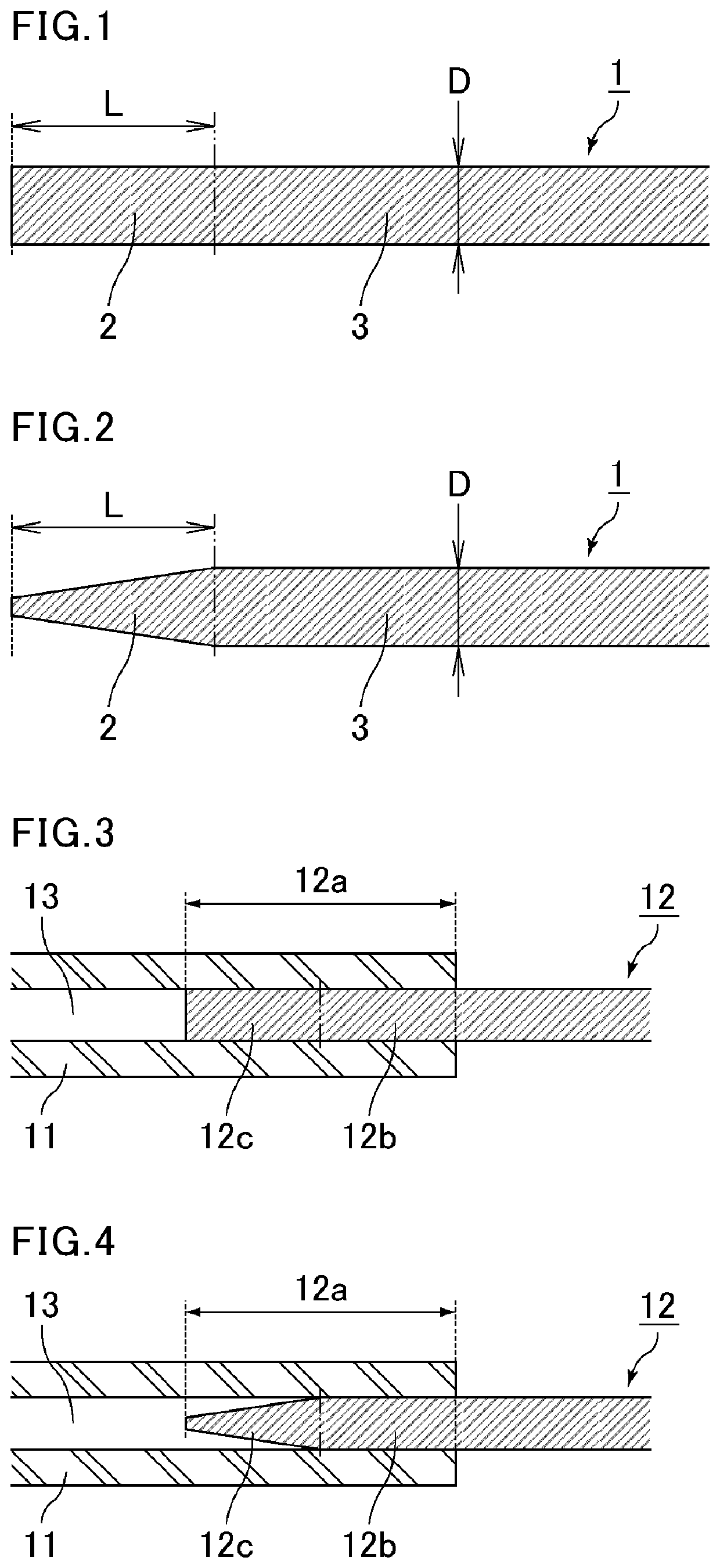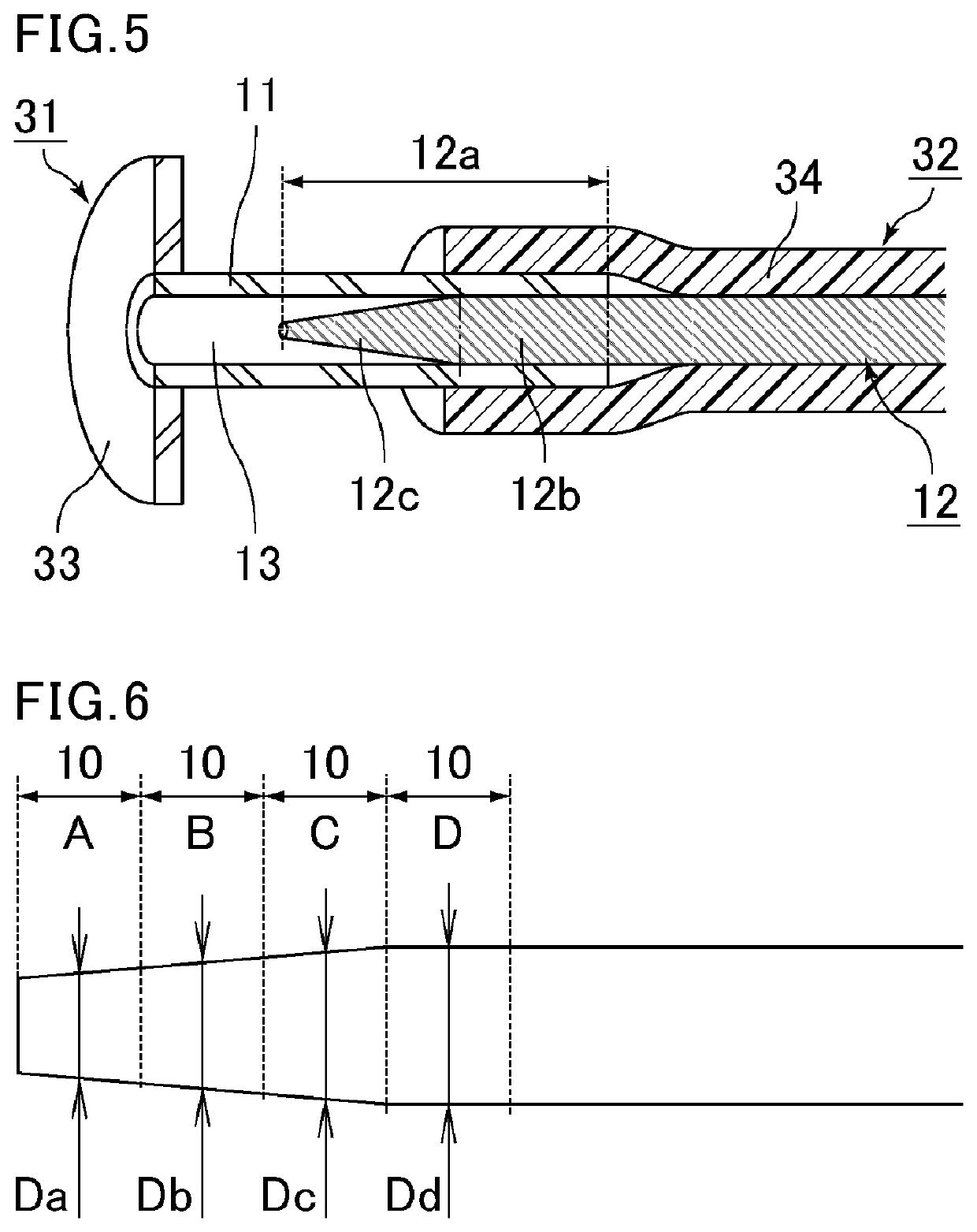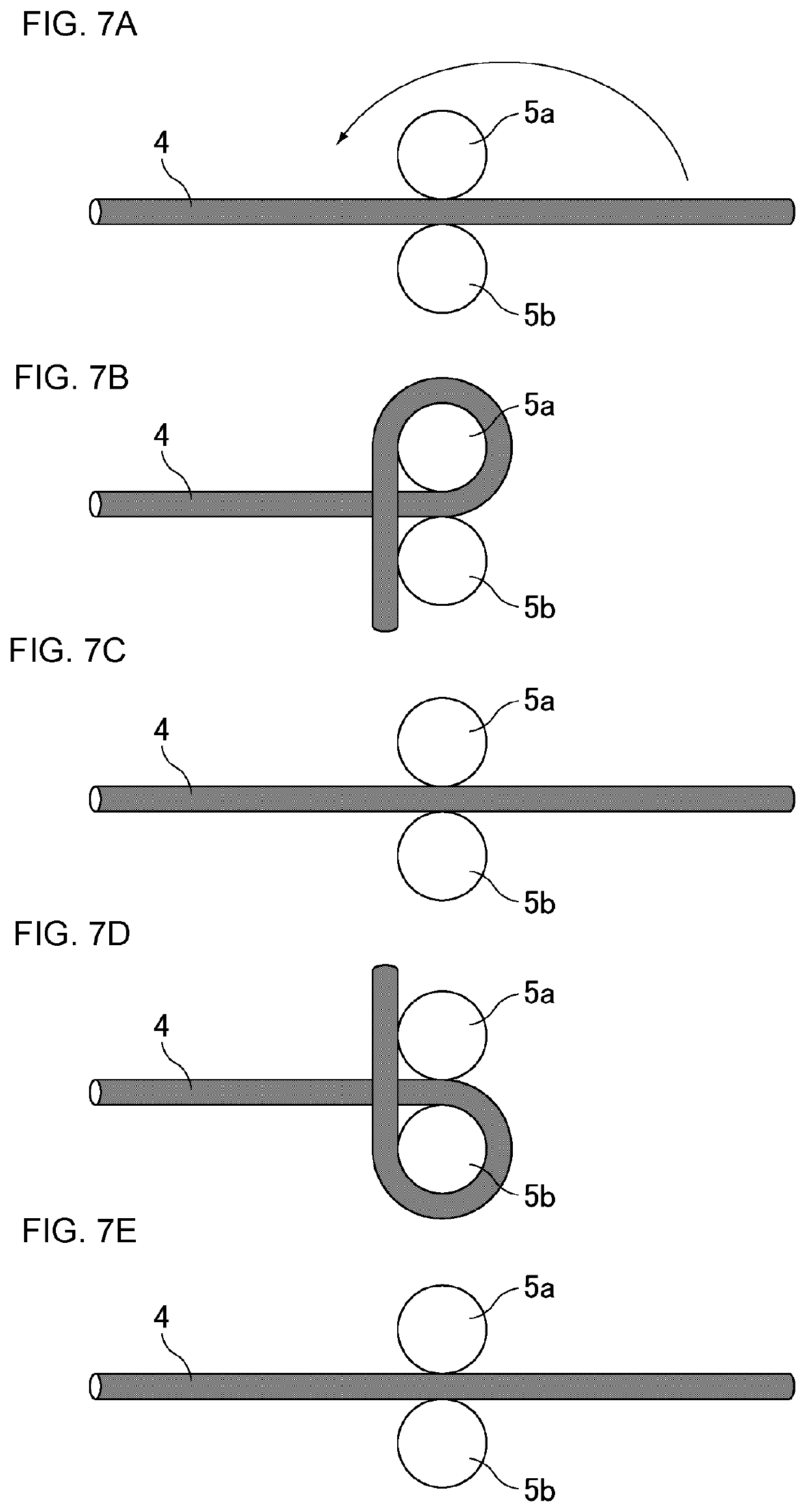Dielectric waveguide having a dielectric waveguide body and a dielectric waveguide end with specified densities and method of producing
a dielectric waveguide and dielectric waveguide technology, applied in waveguides, electrical devices, coupling devices, etc., can solve problems such as loss of transmission efficiency, and achieve the effects of reducing rapid change of impedance, reducing permittivity, and being easy to connect to each other
- Summary
- Abstract
- Description
- Claims
- Application Information
AI Technical Summary
Benefits of technology
Problems solved by technology
Method used
Image
Examples
examples
[0129]The invention is described with reference to examples. These examples are not intended to limit the invention.
experimental example
[0130]PTFE fine powder (SSG: 2.175) in an amount of 100 parts by mass was mixed with 20.5 parts by mass of ISOPAR G® (isoparaffinic hydrocarbon) available from Exxon Mobil Corp. serving as an extrusion aid, and the mixture was aged at room temperature for 12 hours. Thereby, an extrusion aid-mixed powder was obtained. This extrusion aid-mixed powder was put into a pre-molding machine and pressurized at 3 MPa for 30 minutes. Thereby, a cylindrical pre-molded article was obtained.
[0131]This pre-molded article was paste-extruded using a paste extruder, and then heated at 200° C. for one hour so that the extrusion aid was evaporated. Thereby, a resin line having a diameter of 3.51 mm was obtained.
[0132]This resin line was cut so as to have a total length of 660 mm.
Outer Layer:
[0133]PTFE fine powder was mixed with Isopar G available from Exxon Mobil Corp. serving as an extrusion aid, and the mixture was aged at room temperature for 12 hours. Thereby, an extrusion aid-mixed powder was obta...
example 1
[0136]The resin line obtained in the experimental example was heated at 330° C. for 70 minutes. A portion (end) 20 mm or less apart from a tip of the resin line was heated at 260° C. A portion 5 mm or less apart from the tip was then held and the end was stretched at a stretch ratio of two times and at a stretching speed of 200% / sec in the longitudinal direction. Thereby, the end was stretched to 40 mm. After the stretching, a portion 10 mm or less apart from the tip held in the stretching was cut off. Thereby, a dielectric waveguide was obtained.
[0137]This dielectric waveguide was inserted into the outer layer obtained in the experimental example. Thereby, a dielectric waveguide including an outer layer was obtained.
PUM
| Property | Measurement | Unit |
|---|---|---|
| temperature | aaaaa | aaaaa |
| temperature | aaaaa | aaaaa |
| density | aaaaa | aaaaa |
Abstract
Description
Claims
Application Information
 Login to View More
Login to View More - R&D
- Intellectual Property
- Life Sciences
- Materials
- Tech Scout
- Unparalleled Data Quality
- Higher Quality Content
- 60% Fewer Hallucinations
Browse by: Latest US Patents, China's latest patents, Technical Efficacy Thesaurus, Application Domain, Technology Topic, Popular Technical Reports.
© 2025 PatSnap. All rights reserved.Legal|Privacy policy|Modern Slavery Act Transparency Statement|Sitemap|About US| Contact US: help@patsnap.com



